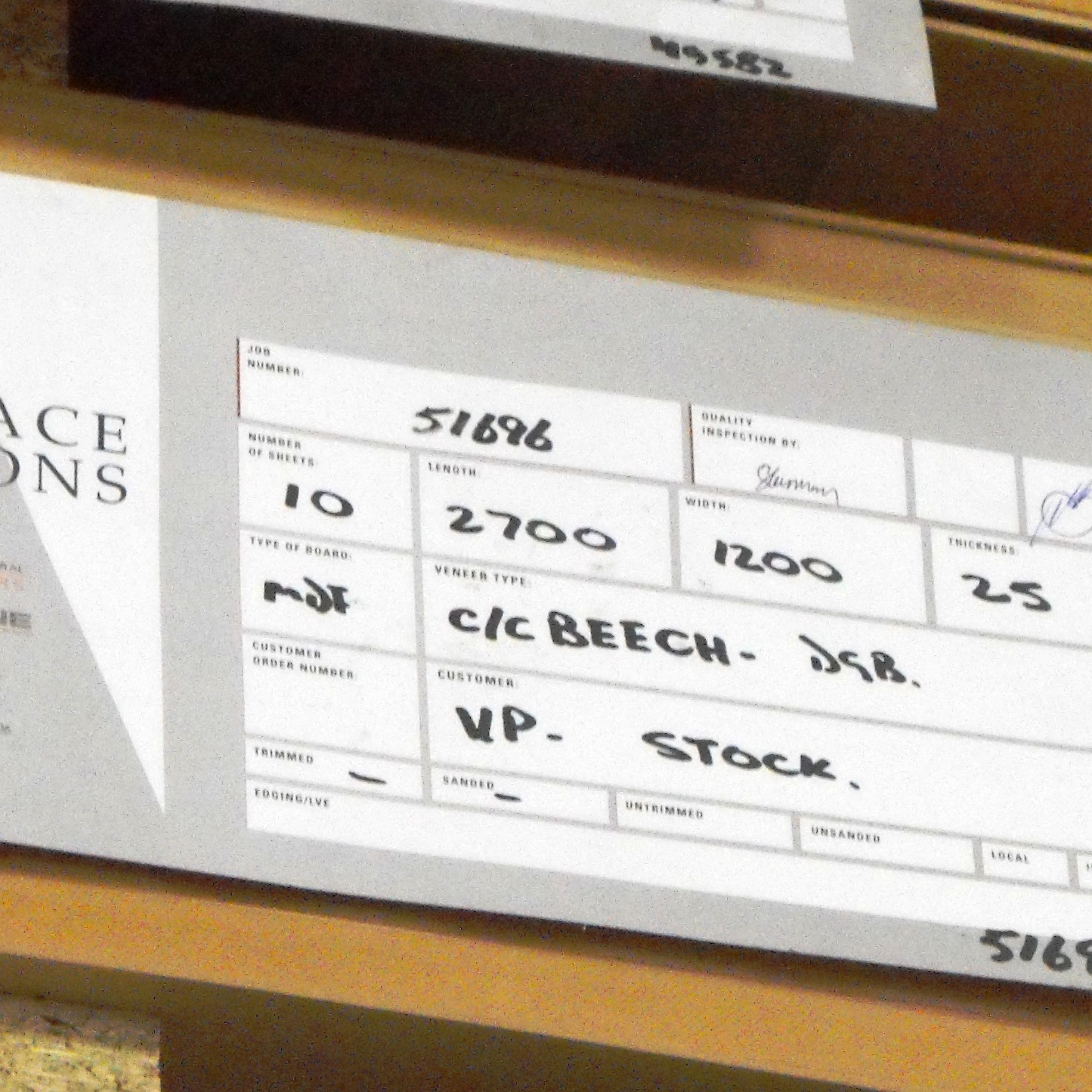Timber veneer is real timber, sliced very finely.
It is not made from man made fibre therefore is a renewable and sustainable resource. It has been used since the time
of the pyramids, and the timeless beauty of antique furniture attests to the lasting quality of veneering art.
Its surface coverage is approximately forty times more than 25mm timber and consequently is the most economical
way of utilizing precious wood.
Decorative Veneer is produced by slicing or peeling selected logs to an approximate thickness of 0.6mm.
Rotary cut veneers are generally used in plywood manufacturing and give the species a very broad/planed appearance.
There are two methods of slicing Decorative Veneers, the difference being the way the flitch is placed in the slicer.
Quarter cut is when the timber is sliced at right angles to the growth rings and the result is a straight line pattern. Crown cut is when the timber is sliced parallel to the growth rings. The result is a crown or “cathedral” figure, usually with a straight grain pattern on either side of the feature.
Examples of popular veneer grain patterns
[Not a valid template]
Methods of joining veneer leaves to make layons
Book Matched
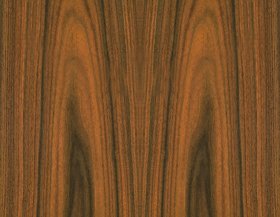
Book matched leaves are alternately folded out, as if opening the centre of a book, so that one veneer leaf is a mirror image of the next.
Slip Matched
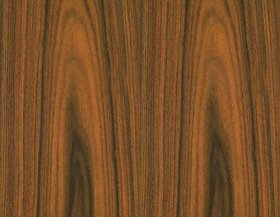
Slip matched veneers are simply laid side by side so that the figure pattern is repeated.
Reserved Slip Matched
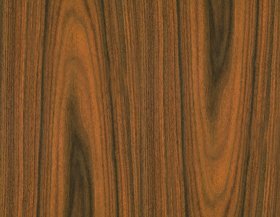
This is similar to a slip match, except that each alternate sheet is reversed end for end. Normally used with crown cut veneers.
Mismatch or Random Match
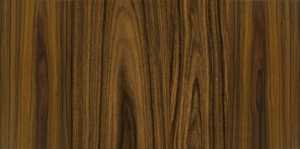
Individual leaves are random matched for effect. Knotty veneers are often laid in this way. This is done to disperse characteristics such as clusters of knots more evenly across the sheet.
Reconstructed, Dyed and Reconstituted veneers
Reconstructed veneers are made from natural veneers sliced from plantation and managed forest timbers, which are dyed and then re-glued in block moulds to form grain-patterns. The blocks are then re-sliced to produce a unique, innovative and consistent range of veneers. The veneer is dyed and provides colour to the natural grain.
Reconstituted veneers are made from different species of natural timber veneers sourced from managed forests. The veneers are re-glued into block moulds to form grain and pattern. The blocks are then re-sliced into veneer, resulting in a consistent grain of that species
Decorative veneer panels
Once sliced and dried, veneer leaves are trimmed or parallel clipped using a guillotine and then joined into a
useable sheet size called layon. Layons are bonded in a hot press to a plantation–grown substrate of MDF, particleboard, plywood or solid core blackboard. Decorative veneered panels can be edged with rolls or strips of 0.5mm, 1.0mm or 2.0mm veneer edging. The layons can be made up into 1.5 ply for curved panels or L.V.E. (laminated veneer edge) for edging and capping.
Definitions for specifying the finish on decorative veneer panels
Good Two Sides
Selected grade of veneer on both sides of sheet/panel material.
Best used on quality doors, panels and shelving where seen both sides.
Down Grade Back (DGB)
Selected grade of veneer on 1 face with a lower grade veneer of same species to back of sheet/panel material.
Best used general doors, drawer fronts, panels and shelving which are seen but not so noticeable.
Where reconstructed, dyed and reconstituted veneers are used no down grade of same is available.
Any Back or Back At Manufacturers Option (BAMO)
Any veneer can be used to counteract sheet/panel material.
Best used where back is unseen i.e.; wall paneling, ceiling panels, end and front panels etc.
